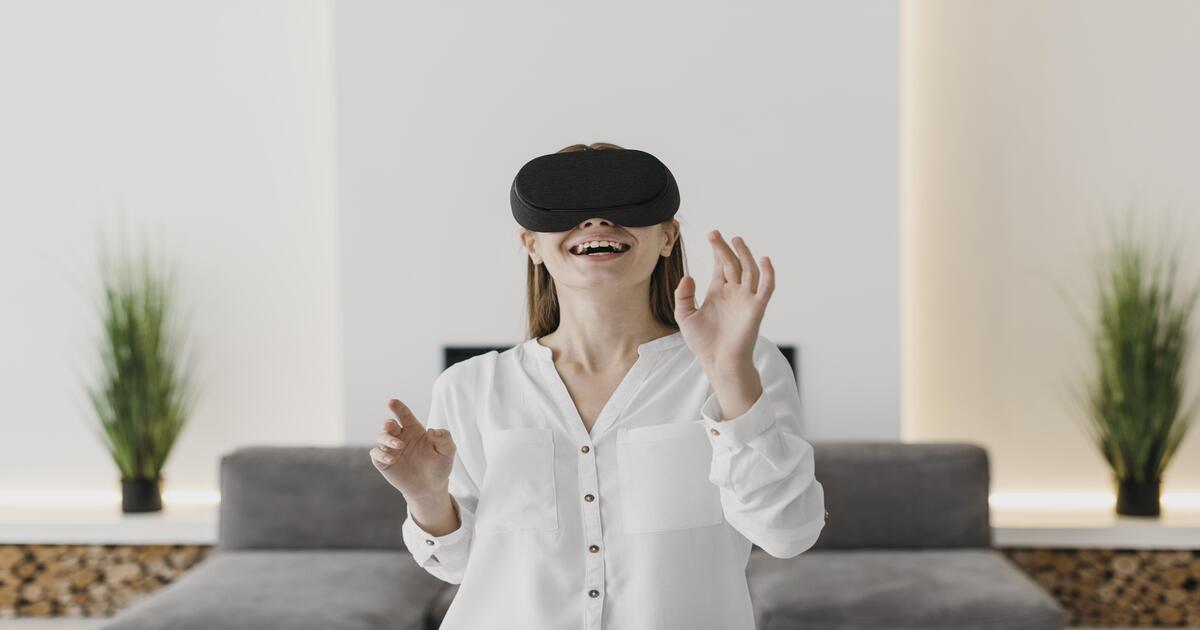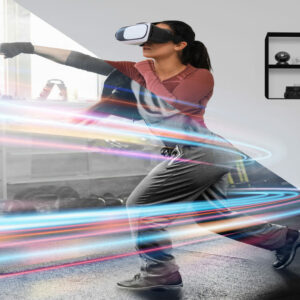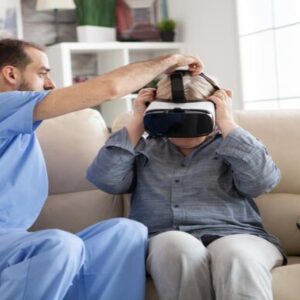Revolutionizing Mental Health
Ever imagined facing fears or traumas in a safe, controlled environment without leaving home? Or learning new ways to cope with stressors without relying on in-person therapy? These are some possibilities virtual reality (VR) offers for mental health.
VR, a technology creating interactive computer-generated worlds, replaces real-world sensory perceptions with digitally generated ones, producing a sensation of being in new, life-sized environments. Using glasses, headphones, and special controls, users can move, interact, and explore these virtual scenarios.
The benefit for mental health? VR can be a powerful tool for individuals to make new discoveries for their psychological well-being. VR allows such precise control over presented stimuli that therapeutic strategies can be implemented with accuracy.
One primary application of VR in mental health is exposure therapy, gradually exposing patients to situations causing fear or discomfort until they overcome them. This technique is widely used for treating phobias, post-traumatic stress disorder (PTSD), obsessive-compulsive disorder (OCD), social anxiety, and other conditions.
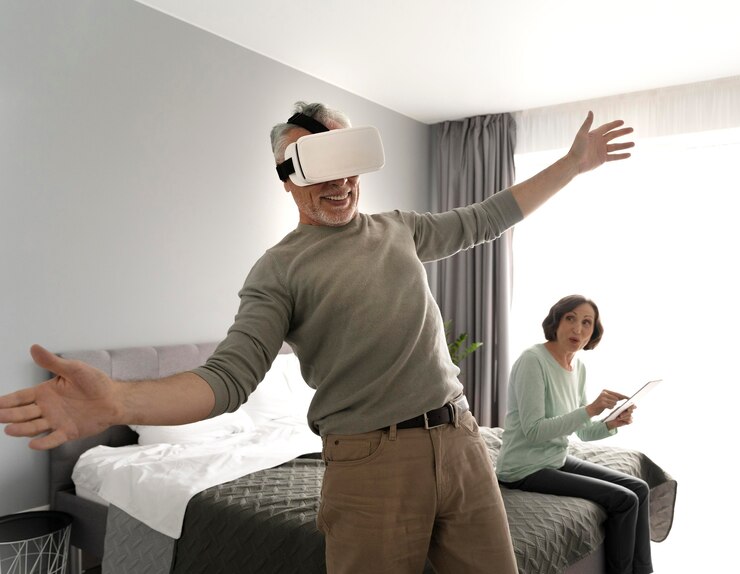
With VR, patients can be exposed to scenarios replicating their emotional triggers, such as flying, public speaking, driving on a road, or facing a spider. Therapists can control the intensity and duration of exposure, monitor vital signs, and patient reactions. Patients may feel safer and more confident confronting their fears in VR than in real life, knowing they can halt the session at any time.
VR can also treat depression, burnout, and mood-related disorders. In these cases, VR can create environments stimulating positive emotions, like relaxation, joy, or gratitude. For instance, patients can visit a paradise beach, a flowery garden, or a childhood place. VR can also help patients develop social skills, self-esteem, and self-confidence through simulations of interactions with others.
Beyond treating specific disorders, VR can contribute to overall mental health prevention and promotion. VR can teach mindfulness, meditation, and breathing techniques, reducing stress and improving focus and attention. It can also create playful, fun, and creative experiences promoting well-being and quality of life.
VR still has much potential to explore in mental health. With advancing technology and scientific research, new ways of using VR to better understand the human brain’s functioning, diagnose mental illnesses, and offer more effective and accessible treatments may emerge.
Mind Over Matter: How Virtual Reality Is Revolutionizing Mental Health
The integration of virtual reality (VR) into mental health opens doors to a variety of therapeutic innovations and strategies for promoting psychological well-being. One notable application is exposure therapy, allowing individuals to confront their fears and traumas in controlled and safe environments.
By utilizing VR, therapists can customize virtual environments that replicate each patient’s specific emotional triggers. Whether facing the fear of flying, public speaking, or dealing with specific phobias, virtual exposure therapy provides a gradual and personalized approach to overcoming these challenges. Precise control over the intensity and duration of exposure, combined with the ability to monitor vital signs and patient reactions, creates a highly effective therapeutic environment.
In addition to treating specific disorders, VR excels in addressing mood-related conditions such as depression and burnout. By creating virtual environments that stimulate positive emotions, patients can immerse themselves in therapeutic experiences. Whether visiting paradisiacal locations, reminiscing about happy childhood memories, or engaging in relaxing activities, VR offers an innovative alternative for improving mood and fostering emotional resilience.
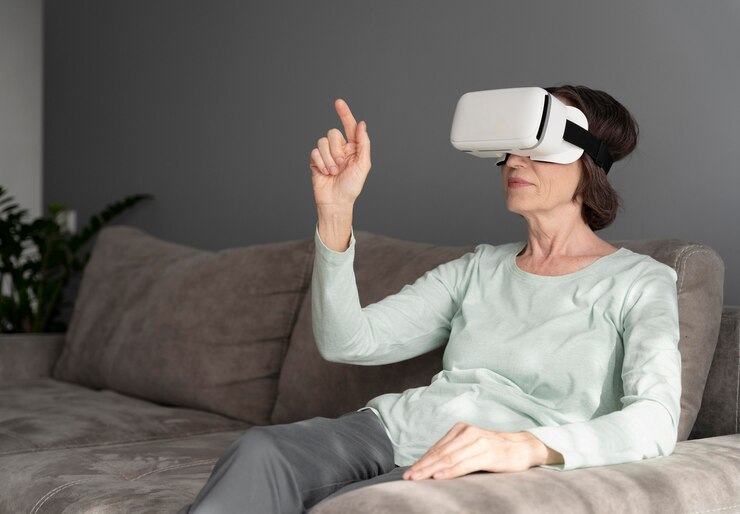
The application of VR in promoting mental health extends beyond treating existing conditions to prevention and overall enhancement. Mindfulness, meditation, and breathing techniques can be taught in an engaging and interactive manner, contributing to stress reduction and improved focus and attention. Furthermore, VR can craft playful and creative experiences that stimulate the positive aspects of the psyche, providing moments of relaxation and joy.
As technology continues to advance, VR has the potential to transform not only conventional therapy but also the scientific understanding of how the human brain functions. Ongoing research suggests that VR could be a valuable tool for diagnosing mental illnesses, offering deeper insights into thought and behavior patterns.
Ultimately, the convergence of virtual reality and mental health represents a promising field with opportunities for continuous innovation. As more studies are conducted and technology evolves, we can anticipate discoveries and developments that will further amplify the positive impact of VR on mental health promotion. To stay updated on the latest developments in this field, keep following our blog. Here, we are committed to providing reliable and current information on the forefront of technology and psychology. Until next time!
Did you like this topic? See more content about: Virtual Reality
Source: novobeing

